
This year’s greatest fashion moment took place at the ancient Pont Neuf bridge — which arcs gently over the Seine in Paris. It was a cool night in the City of Light, and 13-time Grammy award winner Pharrell Williams stepped forward to present his debut show as creative director of Louis Vuitton’s menswear universe. What unfolded was a megawatt spectacle, a confluence of high fashion and high celebrity. The front row included Beyoncé and Jay-Z, A$AP Rocky and Rihanna, Kim Kardashian and LeBron James. Jay-Z completed the coronation by anointing his musician friend the king of high fashion. He then took to the mic and performed a remixed rendition of Panjabi MC’s ‘Mundian To Bach Ke’.
This was not just the greatest fashion moment of the year; it was one of the greatest fashion moments of all time.
After spending decades skirting around the periphery, menswear is suddenly at the epicentre of global culture. It is also — dare I say — the most exciting world in the fashion universe today. Part of the reason for its wide appeal is that it is broadly inclusive and fluid, and therefore not just relevant to men; many women love wearing structured, tailored looks, once perceived to belong only within traditional masculine dress codes. Think Alia Bhatt and Sobhita Dhulipala at GQ events or The Crown’s Emma Corrin, who plays the eternally stylish Lady Di. In July, they pulled up to sartorially stiff Wimbledon in a wheat-hued Ralph Lauren short suit paired with delicious brown derbies and a bleached blonde buzzcut, earning them the title of GQ’s Most Stylish Person of 2023.
(L-R) Alia Bhatt, Sobhita Dhulipala and Emma Corrin
| Photo Credit:
Courtesy GQ India, Getty Images
A perfect style storm
Among Indian designers, the focus on menswear continues to expand. This is a reflection of shifting mores across the country over the past generation: even 15 years ago, there was a strong societal bias that was suspicious of style, equating it with superficiality. Men were supposed to be macho breadwinners, with no time for fashion. The most acceptable style flex at the time was sporting a coloured pocket square.
The Indian menswear movement received a real fillip with the arrival of Virat Kohli and Ranveer Singh — the first male stars who were unabashed about their love for fashion. It was around the same time that disposable incomes rose quickly, and social media started to take grip, spitting out men’s fashion imagery at high velocity and exposing men across the country to styling possibilities. This coincided with India’s retail revolution which allowed men easy access to the latest products across the globe. Today, menswear imagery is ubiquitous, and has permeated to the grassroots. As a result, men across the country are fitter, better groomed, and styled. They have also largely understood the profound power of personal presentation. As a result, the market in India for menswear exploded.
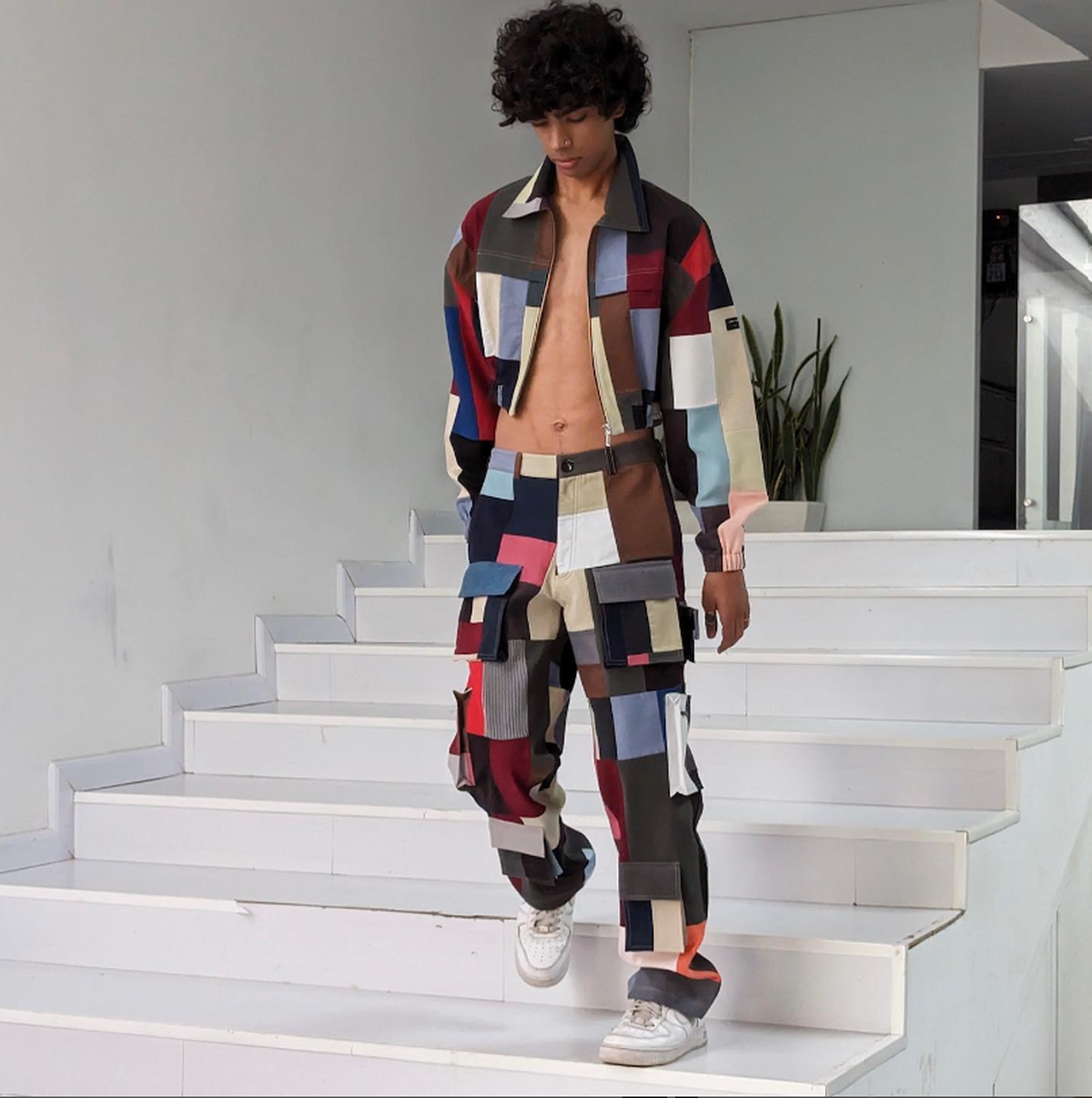
A Jaywalking outfit
| Photo Credit:
@jaywalking
One beneficiary of the wave is the talented Dhruv Kapoor who is well on his way to becoming a mainstay on the biannual Milan men’s schedule, where he shows alongside some of the world’s leading labels. Kapoor designs with a sensibility that transcends national borders, not relying on Indian tropes or motifs to set himself apart on the world stage. On the other hand, Divyam Mehta — named one of GQ’s most exciting new designers on Earth in September — artfully fuses traditional Indian craftsmanship with a modern, global sensibility. The standout piece from his collection is a double breasted silk suit hand-embroidered with kantha stitches, illustrating mythological tales of yore.
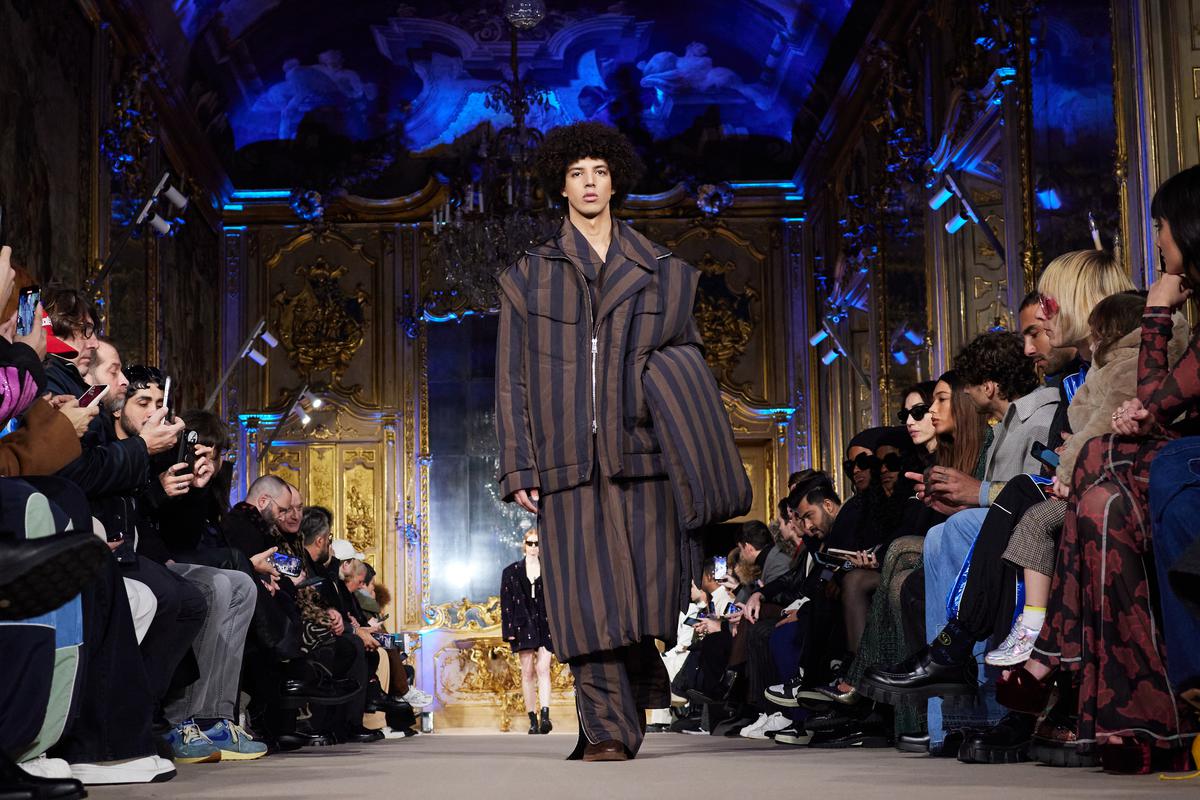
A model walks the runway at the Dhruv Kapoor fashion show during the Milan Menswear Fall/Winter
| Photo Credit:
Getty Images
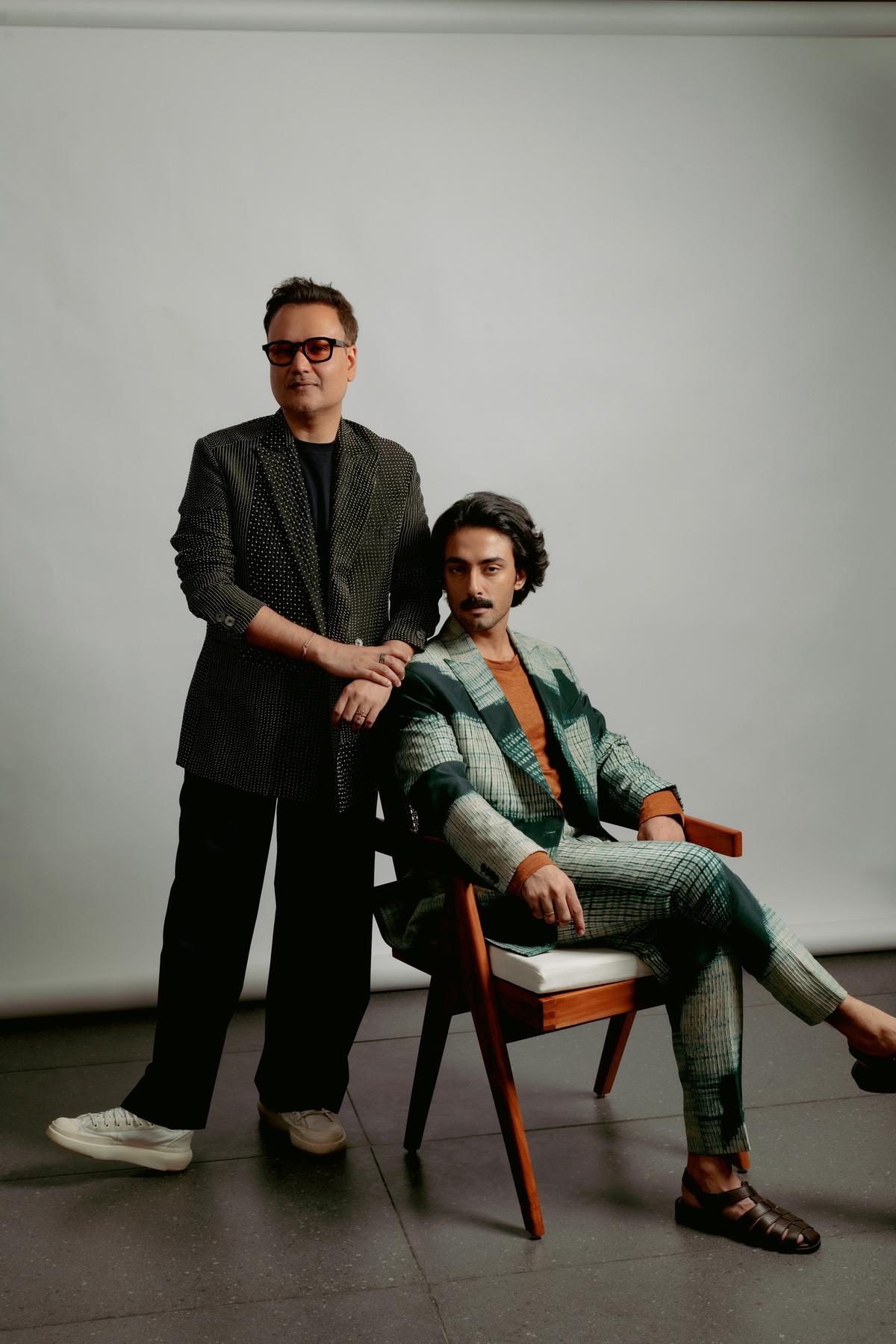
Divyam Mehta (in grey) with his muse Abhinav Tyagi
| Photo Credit:
Courtesy GQ India
It was also a strong year for the very innovative Rimzim Dadu, who opened her first menswear atelier in Delhi. OGs like Kunal Rawal and Anamika Khanna continue to produce beautiful, arresting men’s pieces. And among younger designers, all eyes are on Abhishek Sharma, who has captured the imagination of fashion insiders with his skilful use of textured fabrics sculpted into attention-grabbing silhouettes.
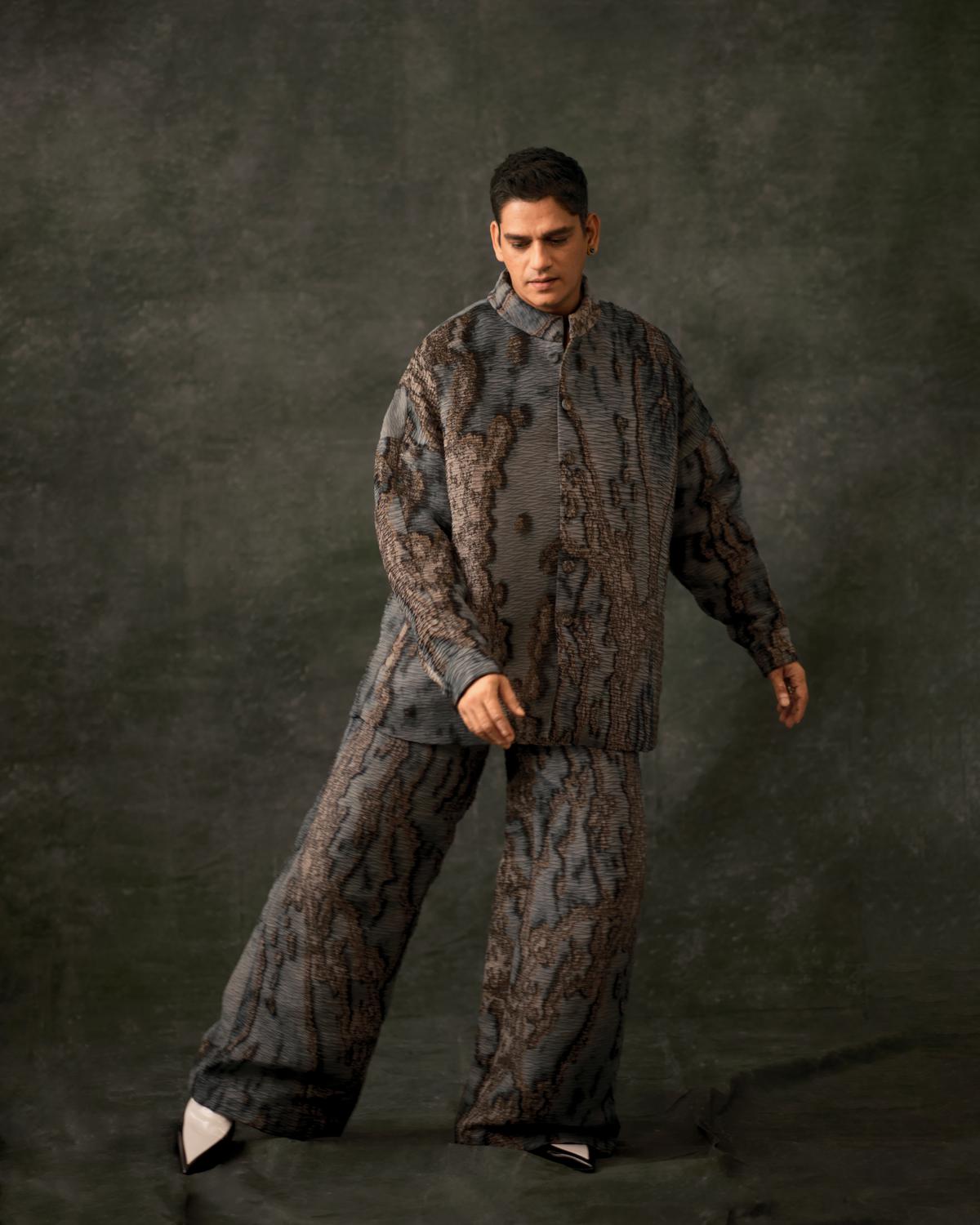
An Abhishek Sharma design
| Photo Credit:
Courtesy GQ India
On the high street, there is the breathless expansion of Tarun Tahiliani x Aditya Birla Fashion’s new men’s ceremonial brand, Tasva, which opened its 65th physical store across the country in a span of 24 months. In fact, the overall retail footprint for men’s fashion has expanded at every price point and segment. Gucci’s commodious store at Mumbai’s new Jio World Plaza has an expansive section dedicated to men, as does Dior’s. And storied Roman tailoring house Brioni has just made a comeback with a new boutique in Delhi.
Streetwear with an Indian identity
Yet for most Indian men, the most accessible route into fashion is through streetwear. With affinity and appetites running high, the local streetwear scene is booming, with a slew of new offerings popping up. Buzzy homegrown label Almost Gods opened a medieval art-inspired space at Delhi’s Dhan Mill, and Bengaluru-based Capsul has a striking new outlet in Bandra where they stock Thrasher hoodies and triple-hem shorts by Bristol.
Streetwear in the West was birthed from skateboarding culture, which is alien to Indians. So we will need to develop our own design lexicon that feels authentic and local. As the appeal of streetwear deepens across India, I am expecting an explosion of wholly original, world-class design, rooted in our own culture, and brought to life on garments that are widely accessible. Fashion that is not just fun — but also a celebration of identity.
Among all the players, a case can be made that the most interesting figure to emerge on the Indian menswear scene in recent times is Jay Jajal, the 30-year-old founder of pioneering Mumbai-based label, Jaywalking. A self-trained designer, Jajal is proud of his Gujarati entrepreneurial roots, building a fashion label by trading on a self-created image.
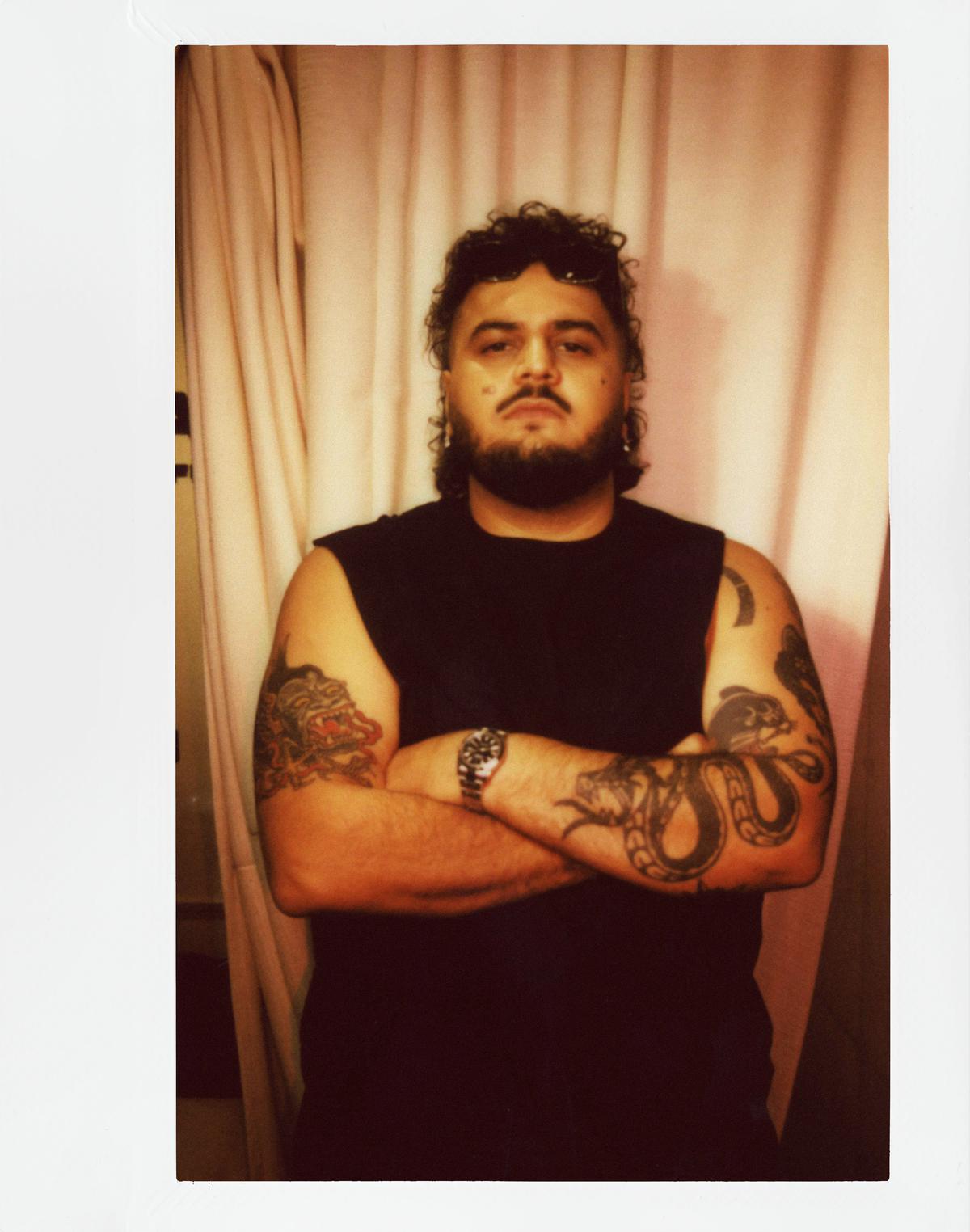
Designer Jay Jajal
| Photo Credit:
Courtesy GQ India
The brand was birthed in a Borivali chawl in 2019, and his message is all about hustle, cash and creativity — and his unvarnished monologues connected with his audience: young men coming of age. Today, Jaywalking is ubiquitous, with Jajal a Pied Piper-like figure for his community of die-hard fans, many of them still in school. When he hosts pop-ups around the country, which he makes a point of attending, customers line up to not just buy his clothes, but also to get tattooed by him. Earlier this year, he helped tattoo more than 500 fans at his Delhi store over a single weekend.
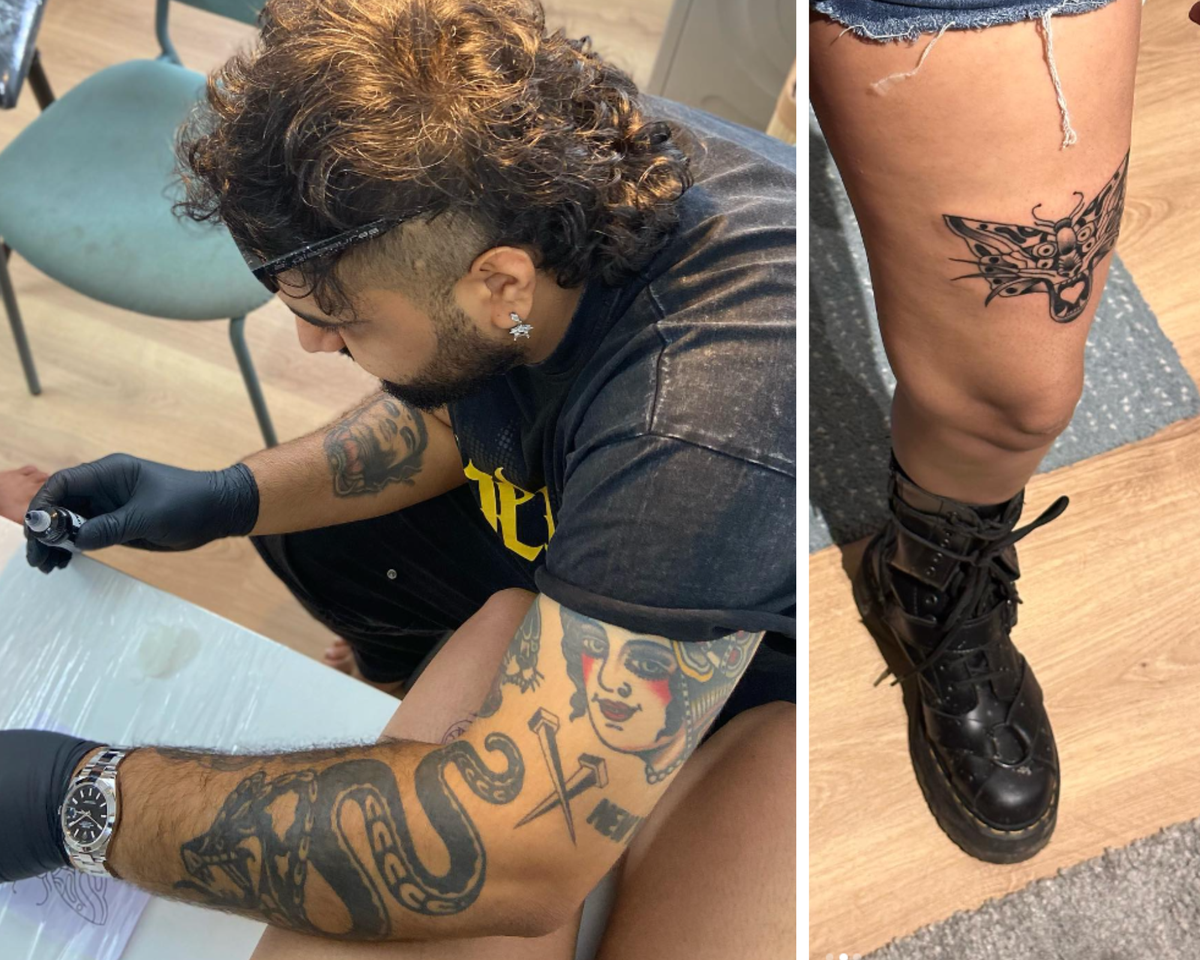
Jay Jajal getting ready to tattoo, and (right) the tattoo
| Photo Credit:
@jaywalking
As we enter 2024, expect the momentum around menswear to gather pace. We no longer live in an era of dress codes, but of individual style. From Shubhman Gill to Vijay Verma, MC Stan to Ranveer Singh, the message to Indian men is loud and clear: look sharp, live smart.
The writer is the editor-in-chief of GQ India.






